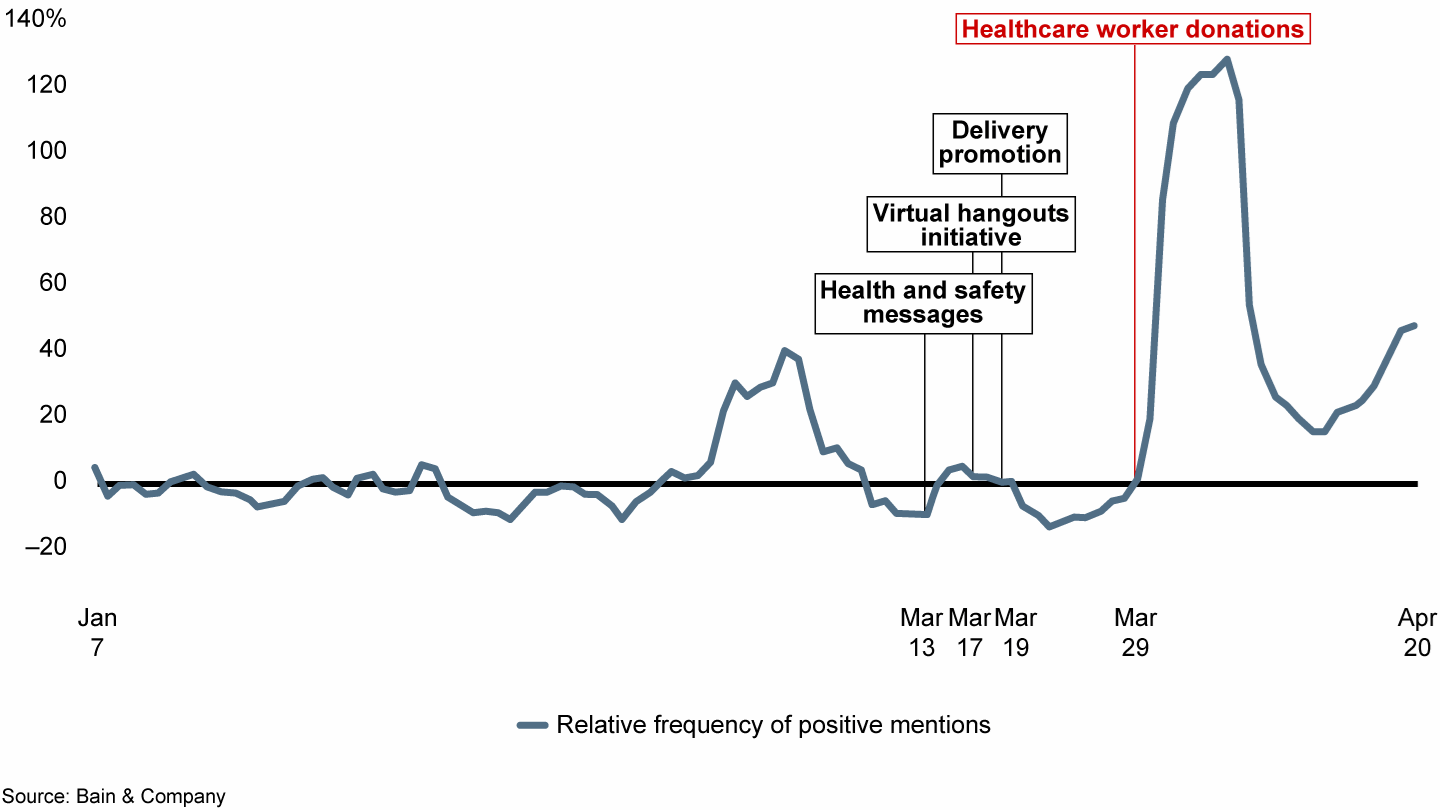Brief

Throughout the Covid-19 pandemic, consumers have been highly attentive to companies’ concrete actions, especially regarding health protocols, reliability and pricing. When choosing vendors and products, people care about what companies do, not just what they say. Advertising and social media messaging thus should tightly align with the material steps a company takes in the marketplace.
Patterns of social media posts convey the point. Bain & Company recently audited more than 300 discrete coronavirus-related communications from 22 large companies operating in the US. Using online tools to track social chatter around these brands, we determined which messages sparked interest among consumers, as well as the tenor of reception―positive, negative or neutral.
Restaurant chain Chipotle, for instance, issued statements in mid-March about its commitment to health and safety. Soon after, it launched virtual lunchtime hangouts featuring celebrity guests and giveaways, and announced a partnership with Uber Eats to expand its delivery footprint, temporarily waiving delivery fees for orders over $10. Positive posts on social media merely held steady after these messages, remaining at roughly the same level as before the pandemic.
That changed on April 1, when Chipotle announced it was offering free food for medical workers, with the goal of giving away up to 100,000 burritos to employees at healthcare facilities during World Health Worker Week. Positive posts spiked on social media before returning to a higher-than-normal baseline level (see Figure 1).
Social media chatter surrounding Chipotle’s coronavirus-related messages


Many companies have encountered consumer dismay or resistance to particular actions. They can recover by acknowledging the error and issuing clear messages about the correction.
Companies can also undermine goodwill by acting in ways that run counter to their public statements. Examples of such unforced errors might include:
- Implying that employees are a high priority when announcing layoffs.
- Burying key information in the fine print, such as professing to waive fees when the fine print shows they are only deferred.
- Making a temporary fix to an odious business practice and seeking credit for it.
The signature actions that resonate most with consumers tend to strike a balance between emotion and function, as Chipotle’s burrito donations demonstrated. When such actions and the accompanying messages align with the equity that a brand has already established, consumers will respond with even stronger advocacy.